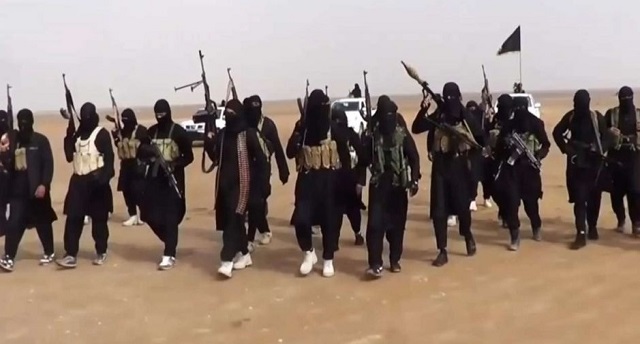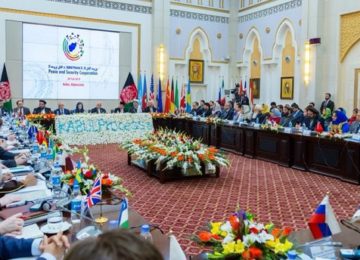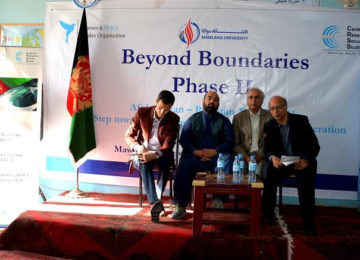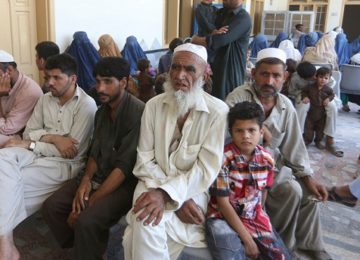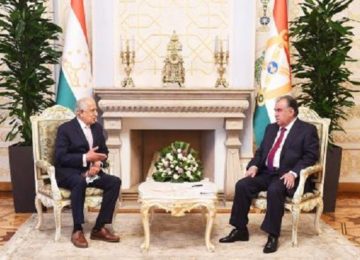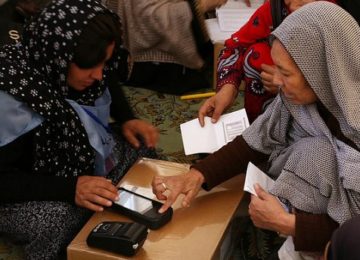It has been long since Afghan people and the Afghan officials have articulated their serious concerns over IS flexing its muscle in Afghanistan; however, IS is now a reality in the war-torn country. In this context, some Afghan lawmakers on January 01, 2018said that Daesh or so-called Islamic State (IS) militants had increased their activities in eastern Afghanistan, blaming the situation on government’s failure to suppress the outfit.
Haji Hazrat Ali, a Wolesi Jirga member from eastern Nangarhar province, told the session of the lower house that moneychangers, traders and doctors were on strike in the province due to kidnappings, murders and armed robberies, but no one cared about them. “Nangarhar has turned into a center of terrorists while the government is silent,” he said.
Haji Zahir Qadir, another MP from Nangarhar, said people in districts had fled violence and displaced to Jalalabad, the provincial capital, but they were not safe as well. He expressed that the government and security forces have failed to suppress Daesh militants, therefore the President should resign for his failure.
Saleh Mohammad Saleh, a lawmaker from eastern Kunar province, said the uptick in insecurity in the country’s east was a matter of concern. Mahmoud Sulaimankhel from Paktika province also criticized the government and said Daesh militants were currently recruiting fighters in Warmami district of the province. He viewed Daesh as a dangerous project, which may convert Afghanistan into Syria and Iraq if not prevented on time. “A number of Taliban militants have joined Daesh rebels in cooperation with Pakistan’s ISI agency,” he alleged.
Laila Wali Hukmi, another lawmaker from Nangarhar, said that the government always claimed it had defeated Daesh but in fact the group was gaining more power with each passing day.
If we look into statistics of the last three months of 2017 i.e. October, November and December, we would come to know that apart from many minor attacks, the Islamic State executed seven major terrorist attacks inside Afghanistan killing almost 156 people in total and many were left injured. These attacks were primarily concentrated in the Kabul and Nangarhar provinces. In one such significant incident, National Directorate of Security (NDS) – the Afghan spy agency’s facility was also stormed by the Islamic State in Kabul on December 18, 2017.
Moscow has also been observing IS movements in Afghanistan closely. Russian media on December 23, 2017 quoted Zamir Kabulov, Russia’s special presidential envoy for Afghanistan, saying that Moscow is particularly worried about the growing foothold of Daesh militants in northern Afghan provinces bordering Tajikistan and Turkmenistan. According to Russian estimates, there are about 10,000 Islamic State militants in Afghanistan and their number is growing because fighters fleeing Syria and Iraq also are heading to the war-ravaged country. It is worthy to mention here that the Islamic State first emerged in eastern Nangarhar province and then spilled over into the neighboring Kunar province and other regions.
The militant groups’ stationing in northern region of Afghanistan could have more than one reason. According to many experts, IS’s rise and then relocation to the northern Afghan provinces is intended at Russia; but Kremlin’s far-laying borders as well as the Central Asian states’ tenacious border embattlement against the possible IS offence is overshadowing this perceptive. The group’s anti-Russian motto and mobilization in Afghanistan derives from Moscow’s crushing of the group’s strongholds in the Middle East. Another possible motive behind a slackened IS movement in Afghanistan could be what is lately hitting news – Afghanistan’s rare earth elements. The underground riches of the southern Afghan province of Helmand are being substantially plundered under the pretext of heated war.
On the other hand, Hamid Karzai, the former President of Afghanistan, has been saying in different interviews that the US is supporting Islamic State in Afghanistan by providing weapons and logistical support. He upheld that the US military choppers were being used to supply weapons to the group. He even went on to say that the Islamic State emerged in the country over the past three to four years under the watch of US military and intelligence agencies.
The Trump administration has been putting allegations on Pakistan, for the latter’s alleged ineffective action against Taliban and its splinter groups. The US has been demanding Pakistan to ‘do more’ in this regard, since long. It is time that such allegations by US against Pakistan come to an end. Instead US should focus more on the expansion of Islamic State in Afghanistan, which is happening under the very nose of American security establishment.
The author Saddam Hussein is a Research Fellow at Center for Research and Security Studies (CRSS), Islamabad. He graduated from School of Economics, Quaid-i-Azam University, Islamabad.
© Center for Research and Security Studies (CRSS) and Afghan Studies Center (ASC), Islamabad.



